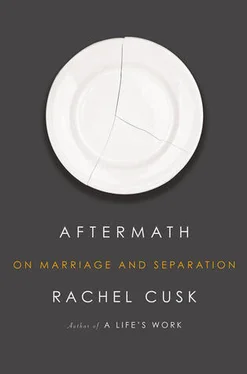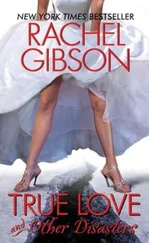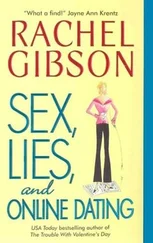Rachel Cusk - Aftermath - On Marriage and Separation
Здесь есть возможность читать онлайн «Rachel Cusk - Aftermath - On Marriage and Separation» весь текст электронной книги совершенно бесплатно (целиком полную версию без сокращений). В некоторых случаях можно слушать аудио, скачать через торрент в формате fb2 и присутствует краткое содержание. Год выпуска: 2012, Издательство: Farrar, Straus and Giroux, Жанр: Публицистика, Биографии и Мемуары, на английском языке. Описание произведения, (предисловие) а так же отзывы посетителей доступны на портале библиотеки ЛибКат.
- Название:Aftermath: On Marriage and Separation
- Автор:
- Издательство:Farrar, Straus and Giroux
- Жанр:
- Год:2012
- ISBN:нет данных
- Рейтинг книги:3 / 5. Голосов: 1
-
Избранное:Добавить в избранное
- Отзывы:
-
Ваша оценка:
- 60
- 1
- 2
- 3
- 4
- 5
Aftermath: On Marriage and Separation: краткое содержание, описание и аннотация
Предлагаем к чтению аннотацию, описание, краткое содержание или предисловие (зависит от того, что написал сам автор книги «Aftermath: On Marriage and Separation»). Если вы не нашли необходимую информацию о книге — напишите в комментариях, мы постараемся отыскать её.
Aftermath: On Marriage and Separation — читать онлайн бесплатно полную книгу (весь текст) целиком
Ниже представлен текст книги, разбитый по страницам. Система сохранения места последней прочитанной страницы, позволяет с удобством читать онлайн бесплатно книгу «Aftermath: On Marriage and Separation», без необходимости каждый раз заново искать на чём Вы остановились. Поставьте закладку, и сможете в любой момент перейти на страницу, на которой закончили чтение.
Интервал:
Закладка:
I go away for a few days with the children and when I return my neighbour calls round. There’s been a disturbance, she says. She hates to have to tell me. Your lodger, she says. She says she’s written to him threatening the police if it goes on. She hopes I don’t mind her doing that, but she was really at her wits’ end. He was out there, she says, pointing. Out there in the garden. It was gone midnight and she had gone to bed, when she heard the most excruciating, demoniacal noise. She got up; other people began to open their windows and call down, and eventually she opened her window too. There he was on the lawn in the darkness, wearing nothing but his boxer shorts. She said to him, people are trying to sleep and you’re making the most dreadful noise. You’re creating a disturbance. But he didn’t seem to hear; he didn’t really seem to know she was there. The next day she came and rang on the bell. She said she hoped there would be no more nonsense, and he agreed that there wouldn’t. But then there he was again, the next night. He started at about one and it went on until five or six in the morning, out in the garden with not a stitch on. But it was the noise, this simply awful noise he made, on and on and on until she thought she’d go mad.
What sort of noise? I said. What was he doing?
Well it’s funny, she said, but I think he was trying to sing.
In the biblical story, Abraham also binds his child to an altar and raises a knife over his head. At least Isaac remains ignorant as he’s led up the mountainside of what his fate is to be. Abraham, like a good father, tells him a half lie: he makes out that they are going up there to sacrifice a lamb. Is it because there’s nothing in this for him that Abraham is capable of that small act of mercy? His sacrifice won’t oil the wheels of civilisation; he isn’t doing it to make the wind blow, to turn things his way. His God has merely required it of him, with the cruelty that can only be born of intimacy, for God knows that Abraham cherishes Isaac more than anything else. Recently Abraham criticised God for his plan to lay waste the iniquitous cities of Sodom and Gomorrah, killing the righteous side by side with the sinners, for there is always good to be found even where evil has the upper hand, and why, Abraham wanted to know, should people who had struggled to resist evil receive the same punishment as those who had succumbed to it? In reply God merely thundered at him for having the temerity to hold an opinion, like a parent thundering at an inquisitive child. Now God retaliates by directing Abraham to destroy what he loves the most. He is teaching him a lesson, for isn’t that precisely how God feels about the prospect of destroying those righteous residents of irredeemable Sodom? It’s hard to be God, hard to be responsible, to be in charge: that’s the lesson here, that responsibility means putting moral duty above personal feeling. If Agamemnon’s was a lesson in the harsh politics of self-interest, in the suppression of feeling as a winning move in the pursuit of success and the human power play with the gods, then Abraham’s is precisely the reverse. It’s a lesson in the discipline of objectivity, a discipline that is nowhere more exacting than in its governing of the moral core of love.
Unlike Artemis, this Christian God is satisfied by willingness: Abraham binds his terrified child to the altar and raises the knife, and at that moment God sends an angel to stay his hand. Blood no longer has any value, in this new world of ideas. Justice has become cerebral, logical, academic. But I imagine Abraham and Isaac walking back down the mountainside afterwards in silence, their story of love in tatters. The father has learned that he is capable of harming his child. The child has learned that parental love is not the safety he believed it to be. What will the new story be, grown from this terrible knowledge?
DARK WINDOWS
My daughters and I do not leave home very often: a kind of numbness has settled on our household that any movement can transform into pain. For a while I thought that going elsewhere created possibilities of consolation, even of recovery, but I have discovered that every welcome is also a form of exposure. It is as though, in other people’s houses, we become aware of our own nakedness. At one time I mistook this nakedness for freedom, but I don’t any more.
It is my mother’s seventieth birthday party, a high occasion: everyone is there. The driveway of my brother’s house is crammed with cars. We too came by car, along the motorway and then on smaller roads that took us through countryside and villages, little redbrick places that reminded me of the village where I used to visit my grandmother as a child. We lived in America then, and that English village, so damp and miniature-seeming, so full of twists and turns and cavities, constituted my education in the country of my parents, where soon I would come to live for good. In California I wasn’t quite sure who I was: large pieces of the jigsaw were missing, and it seemed that the missing pieces were here, in this twisting rain-darkened place. I half-recognised them, the antiquity and the expressive weather, the hedgerows with their mysterious convoluted interiors, the sense of a solid provenance that underlay the surface movements of life like wood beneath the burnish: they were part of me and yet they lay outside me. It was difficult to say — to prove — that they were mine. In the gas-smelling kitchen, rain at the windows, my grandmother buttered the cut face of the cottage loaf before she sliced it, and I watched her like a savage observing a missionary, or perhaps it was the other way around. Either way, I was an onlooker, though I didn’t want to be. I wanted to live in the moment instead of always being lifted out of it into awareness, like a child lifted out of its warm bed half-asleep in the thick of night.
But awareness was the consequence and the curse of that divided life. I couldn’t help noticing England more perhaps than the people who lived there, just as now I notice the unbroken home, the unified lives that I see through lit windows. When I lived behind those windows I wondered about what was outside. Now that division has been externalised again, has become actual, like the geographical division of my youth. I am no longer a participant: once more, I am an observer. To observe is not to not feel — in fact it is to put yourself at the mercy of feeling, like the child’s warm skin meeting the cold air of midnight. My own children, too, have been roused from the unconsciousness of childhood; theirs too is the pain and the gift of awareness. ‘I have two homes,’ my daughter said to me one evening, clearly and carefully, ‘and I have no home.’ To suffer and to know what it is that you suffer: how can that be measured against its much-prized opposite, the ability to be happy without knowing why?
A white limousine pulls out of a junction into the road in front of us, a wedding car, as stately as a hearse. Through its darkened windows I see a lattice of white ribbons; I see the empty back seat, all decked with arrangements of waxy pale flowers. I see the driver in cap and uniform, staring straight ahead. His solemnity, his self-importance, are striking. In his role as functionary to the eternal rites, he seems to make no distinction between life and death. I wonder whether he is on his way to discharge his duties, or returning from them. In the back of our own car is an enormous cake. I baked it the day before, in one of those vague states that sometimes descend on me now, where a slight uncoupling from reality occurs: I seem to skate or float down an incline of time, and only realise I can’t steer or stop when something concrete and hazardous appears in my path. There is at first a consumptive glamour to suffering, for suffering is the corollary of health just as drunkenness is of sobriety. It is the move away from normality that is glamorous. A veil is torn down — how delirious it is, how curiously liberating, to tear it! For a while the old state lends its light to the new, like the sun lending light to a whirling dead star, but gradually I have become conscious of a vast cold, a silence, advancing across it like a shadow. I see the magnitude of the suffering in the same instant as I understand that I can no longer avoid it. It is frightening then to be stranded in that delirium, like the drunk for whom sobriety is as inaccessible as a locked house to which the keys have been mislaid. You can try the handle, look in through the dark windows, but you can’t get inside.
Читать дальшеИнтервал:
Закладка:
Похожие книги на «Aftermath: On Marriage and Separation»
Представляем Вашему вниманию похожие книги на «Aftermath: On Marriage and Separation» списком для выбора. Мы отобрали схожую по названию и смыслу литературу в надежде предоставить читателям больше вариантов отыскать новые, интересные, ещё непрочитанные произведения.
Обсуждение, отзывы о книге «Aftermath: On Marriage and Separation» и просто собственные мнения читателей. Оставьте ваши комментарии, напишите, что Вы думаете о произведении, его смысле или главных героях. Укажите что конкретно понравилось, а что нет, и почему Вы так считаете.












